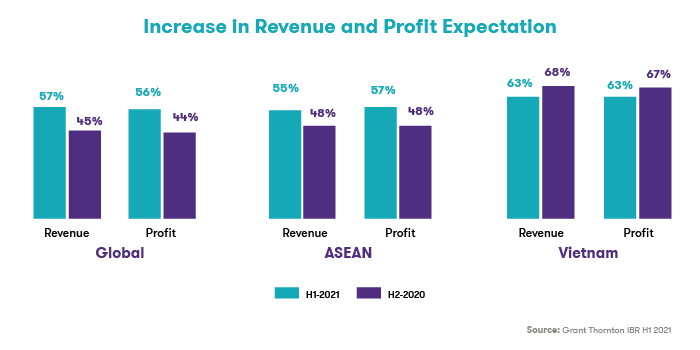-
International Financial Reporting Advisory Services
IFRS reporting advisory serivces of Grant Thornton are carried out by our dedicated team with expertise in IFRS implementation.
-
Audit Services
• Statutory audit • Review of financial statements and financial information • Agreed-upon procedures • FRAS services • Compilation of financial information • Reporting accountant • Cross-border audit • US GAAP audit
-
Audit Quality
We have various methods of monitoring our system of quality control and engagement quality, including real-time involvement of coaches and national office personnel on select audit engagements, reviews of issuer audit engagements prior to archiving by someone outside of the engagement team, and internal inspections of assurance engagements and the system of quality control.
-
Audit Approach
Audit Approach
-
Licensing services
Licensing services
-
International tax planning
Our extensive international network provides us with significant resources to meet all your expansion goals. We strive to develop commercially focused and tailored tax strategies to minimise tax exposures and maximise business efficiency.
-
Expatriate tax planning
We have a broad knowledge base and skills to assist you keep your personal income taxes to a legitimate and reasonable level, while remaining compliant with legislation. We can develop a personalised package for each key employee to take maximum advantage of the exemptions and incentives available.
-
Tax advisory
We will review the proposed business model and transactions and advise on tax implications and recommendations to optimize the tax opportunities under the local regulations and treaties which Vietnam entered into. Furthermore, we coordinate with our GT global tax team to provide a comprehensive tax advisory for the countries involved in the business model and transactions.
-
Tax compliance services
This service is designed to assist enterprises to cope with the statutory tax declaration requirements in line with the Vietnamese tax laws as well as the frequent changes and updates in tax laws.
-
Tax health check
Our Tax Health Check involves a high-level review of specific tax areas to highlight the key issues that need to be rectified in order to reduce tax risks. Through our extensive experience, we have identified key risk areas in which many enterprises are not fully compliant or often overlook potential tax planning opportunities. Our tax health check service represents a cost-effective method to proactively manage risks and reduce potential issues arising as a result of a tax inspection.
-
Transfer Pricing
Transfer pricing is a pervasive tax issue among multinational companies. In Vietnam, the tax authorities require special documentation to report related party transactions. Compliance with transfer pricing regulations is an important aspect of doing business effectively in Vietnam as failure to do so may result in significant penalties.
-
Tax due diligence
We conduct tax due diligence reviews of target companies to analyse their tax exposure and position in relation to acquisitions, mergers or consolidations. We are able to integrate this service with our Advisory Services department in order to offer a comprehensive, holistic due diligence review.
-
Customs and international trade
Our experienced professionals can help you manage customs issues more effectively through valuation planning and making use of available free trade agreements. We also assist Clients in optimising their customs procedures by making use of potential duty exemptions and efficient import-export structures. Risk mitigation activities include customs audit defense and compliance reviews.
-
M&A Transaction
We advise numerous foreign investors on efficient tax structures for their investments. Our experience allows you to consider all the options and set up a corporate structure that meets both operational and tax efficiency requirements. In short, the structure that is best for you.
-
Industrial Zones – Picking A Location For Your Business
Grant Thornton Vietnam’s one-stop services are designed to provide comprehensive support to both new and current investors who are planning to expand or restructure their business in Vietnam. Our professionals have established strong working relationships with landlords, property developers and authorities at various localities. With extensive experiences in liaison with the relevant agencies, we offer assistance including negotiation on land rental rates and efficient management of licensing process. Our customized and flexible solutions can bring benefits of cost efficient location, accelerate licensing process, and optimize tax opportunities while remaining in compliance with legislation.
-
Tax Audit Support
Tax audit support services provide comprehensive assistance to your business in Vietnam. Recent tax practices have shown the general tendency of launching routine tax audit on yearly basis. Tax authorities have been effectively using more sophisticated methods to identify target entities from across different industry sectors.
-
Business Risk Services
Business Risk Services
-
Transaction Advisory Services
Transaction Advisory Services
-
Valuation
Valuation
-
Business consulting services
Finance Management Advisory
-
Accounting services
Accounting services
-
Taxes compliance within outsourcing
Taxes compliance within outsourcing
-
Payroll, personal income tax and labor compliance
Payroll, personal income tax and labor compliance
-
Secondments/Loan staff services
Secondments/Loan staff services
-
Compilation of the financial and non-financial information
Compilation of the financial and non-financial information
-
Accounting systems review and improvement
Accounting systems review and improvement
-
Initial setting-up for accounting and taxes systems
Initial setting-up for accounting and taxes systems
-
Management accounting and analysis
Management accounting and analysis
-
Comprehensive ERP system solution
ERP software is a tool for business operations, production management, order processing and inventory in the business process. Today, ERP software for small and medium businesses has been greatly improved to help businesses manage their business better. The article below will answer all relevant information about what ERP software is and offer the most suitable ERP solution for businesses. Let's follow along!
-
Analyze Business Administration data
We believe in the value that data can bring to the success and development of every business. Our team helps design data architecture supported by tools, to support business governance and provide useful information to management.
-
Financial reporting compliance solution package
Putting financial issues at the heart, this service helps ensure that financial reports for customers comply with both the requirements of Vietnamese accounting regulations and standards (VAS) as well as reporting standards. international finance (IFRS).
-
Third-party ERP extensions
ERP is a long-term solution that requires long-term travel, not short-term. We understand that many businesses cannot deploy the entire ERP system at once due to many different reasons, instead businesses can deploy each part. Over time, these solutions can be expanded to accommodate improved business processes or can even link completely new processes across different departments.
-
Localize, deploy and rebuild the project
Quite a few ERP projects need to be implemented according to current Vietnamese requirements and regulations, but still comply with common international business requirements. These projects need some improvements and adjustments in the right direction.
-
Consulting on technology solutions
We support the selection and implementation of the most suitable solutions, ensuring business efficiency and performance. We will work closely with customers to plan, evaluate and implement the right technology investment strategies and solutions to meet the development needs of businesses.

-
Offshore company establishment service
Using the offshore company model will facilitate the owner in the process of transaction and expand overseas markets, take advantage of the tax policy with many incentives and protect the value of the family enterprise's assets.
-
Private Trust Advisory
The development of the economy with many modern financial instruments has brought many advantages and opportunities for the enterprises, but there are still certain potential risks in any type of business. So how to protect your asset value with an appropriate company structure while stay compliance with relevant regulations?
-
Our values
We have six CLEARR values that underpin our culture and are embedded in everything we do.
-
Learning & development
At Grant Thornton we believe learning and development opportunities help to unlock your potential for growth, allowing you to be at your best every day. And when you are at your best, we are the best at serving our clients
-
Global talent mobility
One of the biggest attractions of a career with Grant Thornton is the opportunity to work on cross-border projects all over the world.
-
Diversity
Diversity helps us meet the demands of a changing world. We value the fact that our people come from all walks of life and that this diversity of experience and perspective makes our organisation stronger as a result.
-
Contact us
Contact us
-
Available positions
Experienced hires
-
Available positions
Available positions
Our global research amongst SME’s in 29 countries (IBR), globally, has shown that outlook indicators have increased in H1 21 now surpassing pre-Covid levels. Double digit increases in the IBR outlook indicators were common across all regions, with most regions setting new records or returning to early 2018 levels. Expectations for exports are particularly strong, with just under 50% of firms expecting to increase exports in the next 12 months, which is encouraging firms to dedicate more resources to non-domestic markets and expand to new markets.
However, the rise in outlook indicators has been accompanied by a rise in “restrictions” on business such as access to finance, and cost of skilled labour and over 50% of firms (in our survey)now see restrictions as a constraint to business.
Economic optimism rose 12 percentage points (pp) in H1 21 on the back of a 14pp rise in H2 2020 and over 66% of firms are now optimistic about the economic outlook, now well above pre-Covid levels. Probably not surprising, employment expectations for the next 12 months are the strongest on record, whilst Revenue and Profit expectations have also increased strongly both up 12pp in H1 21.

However, despite the strong increase in business optimism, economic uncertainty remains an issue globally with 61% of firms citing ongoing uncertainty as a constraint to business. Businesses are also concerned about attracting the requisite skills in the labour market, which is reflected in rising labour costs. Over 53% of the firms also identified rising energy costs as a constraint representing an increase of 8pp over the last survey.
In ASEAN, economic optimism increased 7pp in H1 21 to 64% , slightly lower than the global average of 69%, however this is the highest level recorded in ASEAN since Q2 2018. Revenue and Profit expectations increased 7 and 9pp respectively but below the global figure of 12pp. Unlike other regions export expectations in ASEAN remained unchanged at 43% although this is in line with the global average. Unlike the global trend there is no expected increase in resources dedicated to non-domestic markets or in the number of markets. As in the global view companies in ASEAN are increasingly concerned about the availability of skilled labour.

Kenneth Atkinson, Founder and Senior Adviser of Grant Thornton Vietnam said: “In Vietnam, whilst mid-market companies displayed amazing levels of health, at the beginning of the pandemic compared to other countries in our survey this has been slowly deteriorating over the last 12 months. In the last 6 months companies have been impacted by worsening barriers to growth, primarily related to economic uncertainty and demand constraints, largely due to the continued outbreaks of Covid. There is some improvement in the general outlook but the elements are mixed with economic optimism and investment intentions strengthening and growth expectations weakening”.
Optimism is up by 8pp with 58% of mid-market companies now feeling optimistic, which is lower than the 64% in ASEAN. Whilst revenue and profit expectations have fallen by 5pp and 4pp respectively over 63% of the companies expect yearly increases in both. Whilst a little disappointing this is still above the ASEAN averages.

Vietnam has shown historic strength in export expectations but the most recent results have shown growth expectations falling by 10pp. This could be due to the timing of the survey which was conducted during the start of the most recent outbreak and the export expectations had increased 7pp in H2 2020.
Economic uncertainty has risen to its highest level on record with 68% of companies identifying this as a constraint to growth, whilst shortage of orders has been cited as a concern by 65% of the companies.
In terms of the impact of Covid on Vietnamese companies 59% reported a decrease in sales, whilst 54% cited a loss of business opportunities probably due to the continuing barriers to travel. 41% of companies had faced difficulties because of supply chain interruptions and 40% had experienced work force issue. Another popular challenge citied by 45% of the companies was challenges managing stakeholders.
When looking at Covid impact on EBITDA 39% of companies had experienced no change or an increase in 2020. A decrease of 1-9% in EBITDA was reported by 23% of the companies and 18% reported a decrease of 10-19%. 15% reported a negative impact of 20% or greater.
Approximately 90% of companies stated that they would be making major new investments in the coming 12 months. The top 4 categories for operating system investment were IT security management 55%, companywide IT infrastructure 49%, supply chain 46% and sales optimization and accuracy 44%. Interestingly 33% of companies were going to make investments into ERP systems.
Vietnam saw a record number of M&A transactions last year and 53% of our companies stated that they were considering M&A as a way of strengthening their business whilst 26% were considering M&A as a means of exiting the business.
Broadcasted on HTV
View video
Contact
For more information, please contact our expert. We are happy to support.



